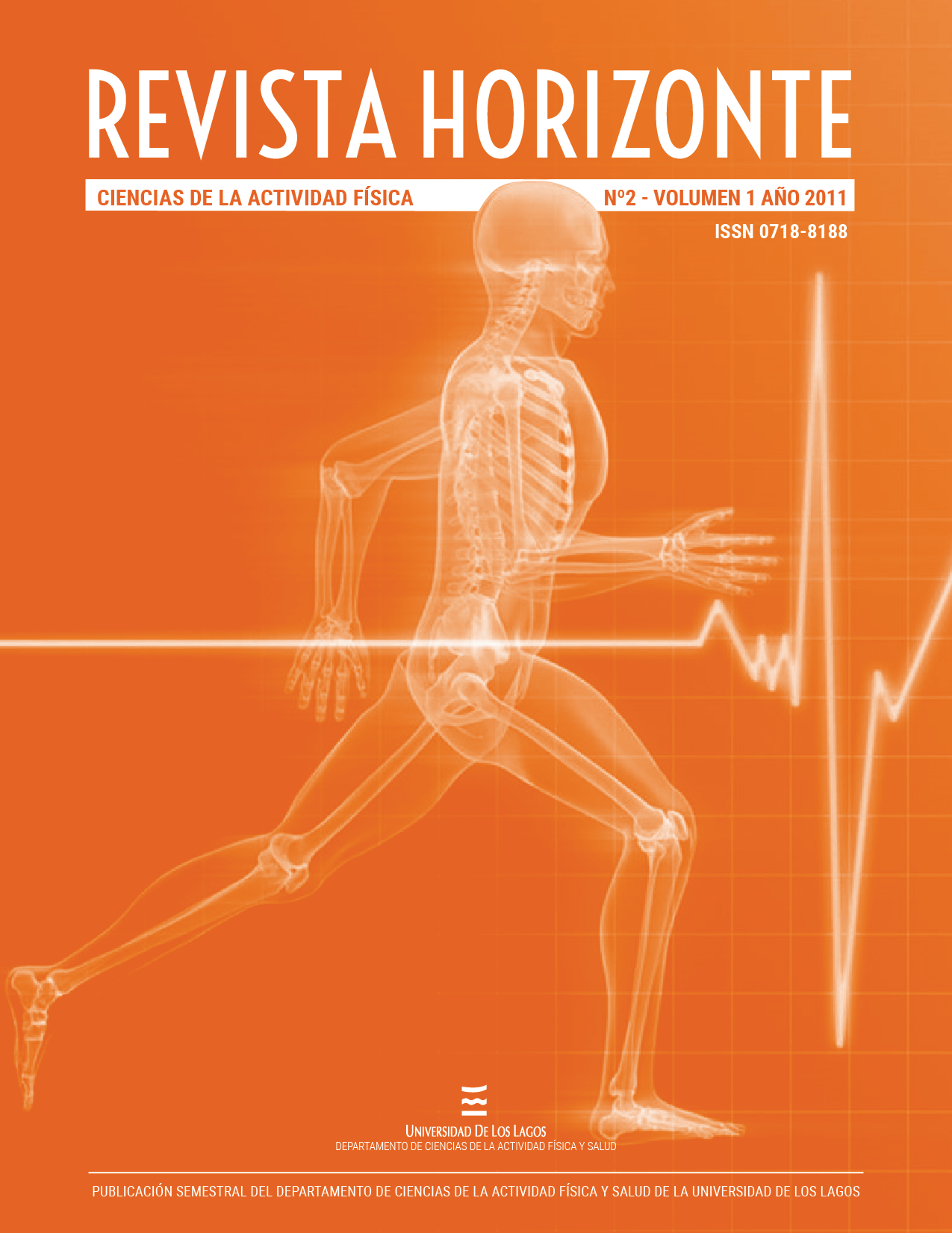Overloaded physical training improves fitness and health, regardless of body weight or body composition modification
Main Article Content
Issue:
Vol. 1 No. 2 (2011): Julio
Section: ARTÍCULOS ORIGINALES
Abstract
 This article examines the effects of a physical training program on physical condition, health and anthropometry in subjects with obesity. The research method consisted of middle-aged sedentary men, all with body mass indexes between 33 and 45 kg/m2. The volunteers were divided into a control group (CG; n=4; 50+/- 2 years old) and a group subjected to physical training (GE; n=4; 45+/- 3.6 years old). The physical training lasted 12 weeks. During this period, the subjects completed 20 sessions, performing 8 overload exercises (squat, bench press, knee extensions, leg press, behind-the-neck press, trunk push-ups, elbow push-ups and elbow extensions), 2 sets/exercise, with an intensity of 8-12 RM/set and a rest pause between sets and/or exercises of 1-2 minutes. In addition, between sessions 15-20, subjects performed 5-7 additional localized exercises (isometric trunk flexion, unilateral leg press, unilateral elbow flexion, unilateral knee extension, unilateral knee flexion, unilateral elbow extension, unilateral upright rowing), where they performed one set of 60 seconds for each exercise, using an intensity that allowed them to reach muscle fatigue at the end of the 60 seconds of work and using a rest pause of 60 seconds between exercises. All sessions were supervised by the principal investigator and lasted 40-60 minutes. Â
Article Details
Ramírez-CampilloR., & Arcay Montoya, R. (2011). Overloaded physical training improves fitness and health, regardless of body weight or body composition modification. Revista Horizonte , 1(2), 19-27. Retrieved from https://revistahorizontecaf.ulagos.cl/index.php/revhorizonte/article/view/2759
Downloads
Download data is not yet available.

This work is licensed under a Creative Commons Attribution-NonCommercial-ShareAlike 4.0 International License.
